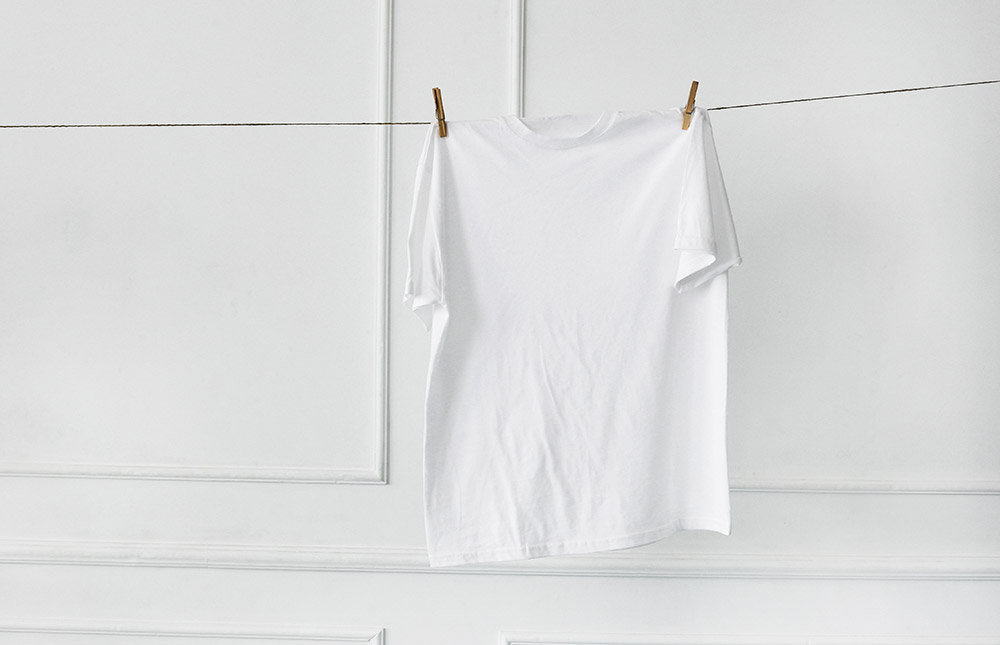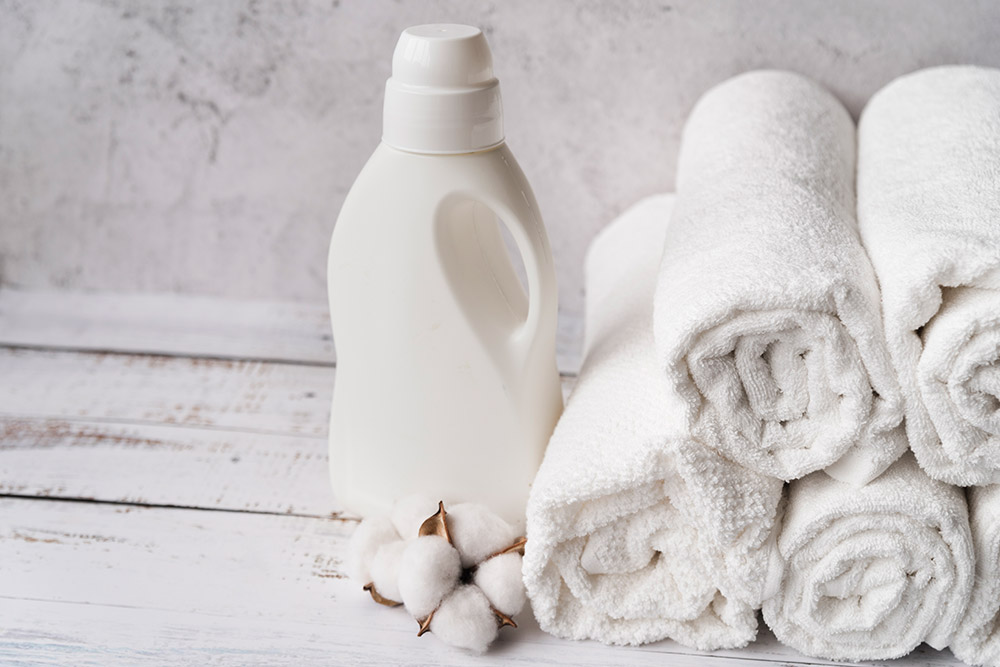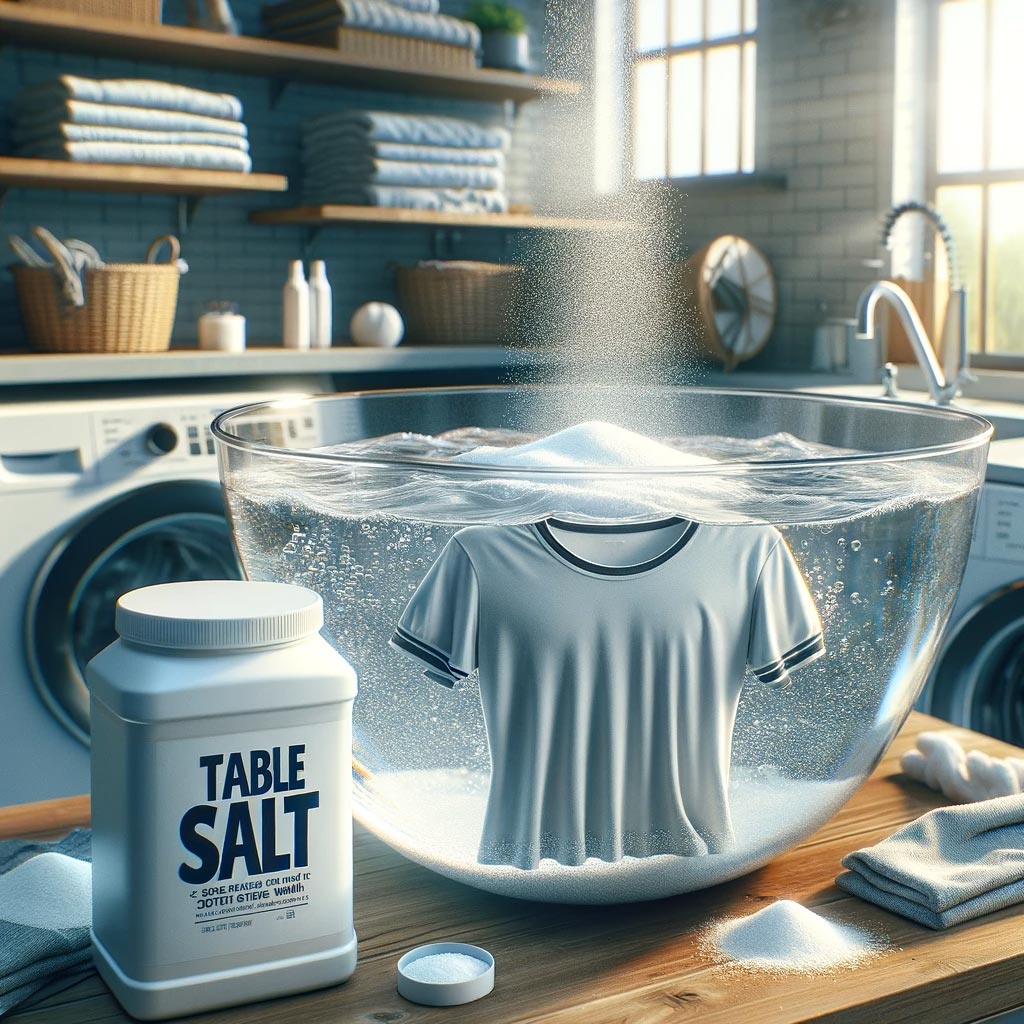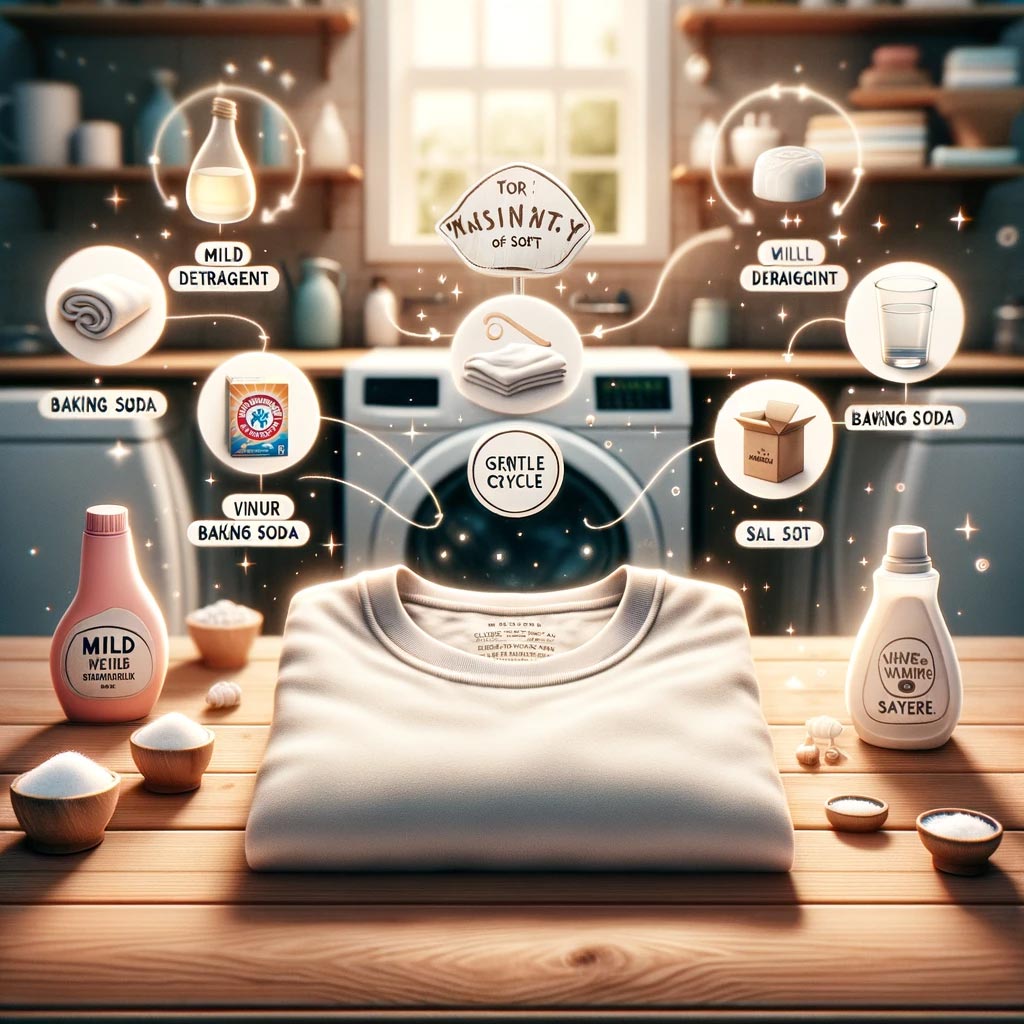No products in the basket.
T-Shirt Guide
How to Soften T-Shirts: A Complete DIY Guide
You know how most of our closets start with t-shirts? They are versatile, comfy, and simple to wear all the time. When you wash even the coziest of shirts, they could feel like sandpaper. Learning how to soften t-shirts isn’t anything you should worry about. There are several neat things you can do to restore the suppleness of those t-shirts. In this tutorial, you will learn many simple techniques to easily soften your t-shirts, allowing you to effortlessly enjoy both comfort and style.
Understanding Your T-Shirt’s Fabric Before Softening
Knowing the fabric type of a t-shirt is the first step in softening it. The fabric dictates the optimal softening procedures and the frequency of application.

There are three possible fabrics for a t-shirt:
- Cotton T-shirts: The natural fabric cotton is famously soft and breathable, making it an ideal choice for T-shirts. Because of its absorbency and comfort, T-shirts crafted from this cloth are perennial favorites. The flip side is that cotton t-shirts, including those from Gildan, become stiff and coarse very fast if you don’t wash them properly. The reason for this is that when cotton is heated, its fibers constrict, and the cloth becomes less supple.
- Polyster T-shirts: Polyester, a synthetic material with excellent durability and wrinkle resistance, is often used for athletic apparel. Polyester shirts, however, have a tendency to get annoyingly stiff after a few washes. The reason for this is that when sweat and oils accumulate on polyester, the material becomes less breathable and rigid.
- Blend T-shirts: Many t-shirts are made from a blend of cotton and polyester. This combination combines the softness of cotton with the durability of polyester for an ideal balance. On the other hand, the proportion of cotton to polyester in the fabric determines how soft or stiff a t-shirt is. The amount of cotton in a t-shirt determines how soft it will feel compared to the amount of polyester, for example.
Understanding the fabric of a t-shirt is the first step in properly softening it. Allow me to demonstrate a few of the most effective techniques for smoothing out t-shirts.
5 Methods for Softening a New T-Shirt
To make t-shirts softer, you can use a variety of techniques; which ones you choose will depend on the fabric and your own tastes. Here are some popular options:
Softening T-Shirts by Using Fabric Softener
Some people use fabric softener on a regular basis to make clothes feel softer and less staticky. Coating the fibers of the cloth makes them smoother and less prone to sticking together. This makes clothes, especially t-shirts, softer and more pleasant to wear. Here are some ways to make your t-shirts softer:
- Add fabric softener to your washing machine: As the rinse cycle begins, add the fabric softener to the washing machine. This is the most common way to use fabric softener. The measurements on the bottle will tell you just how much to use for your load size.
- Use a fabric softener ball: A fabric softener ball may be used in a top-loading washer instead of dumping fabric softener into the machine. Just fill the ball with detergent and put it in the washing machine before you start the cycle to add fabric softener.
- Soak your t-shirts in fabric softener: To make washing your t-shirts a little easier, soak them in a mixture of water and fabric softener for half an hour. Stiff or badly stained t-shirts benefit greatly from this technique.

Fabric softener can be used to soften t-shirts; however, it won’t be effective on all fabrics. Cotton t-shirts, for example, might gradually lose their vivid hues or deep tones due to this. For those who are concerned about fading, a natural option like vinegar may be used.
Softening T-Shirts With Vinegar
In addition to its many culinary purposes, vinegar also has the further advantage of softening cloth. By removing the minerals and detergent residue, it makes the cloth softer and makes it absorb more.

Here are some ways to soften your t-shirts with vinegar:
- Add vinegar to your washing machine: Like fabric softener, half a cup of white vinegar may be used in the washing machine’s rinse cycle. By eliminating any accumulation on the cloth, this will make your t-shirts softer.
- Soak your t-shirts in vinegar: Before washing, soak heavily stained or grimy t-shirts in a solution of equal parts vinegar and water for 30 minutes. Consequently, filth and grime will be less of a challenge to remove from your t-shirts.
- Use vinegar as a fabric softener alternative: If you’re concerned about color loss or have sensitive skin, you may use vinegar instead of fabric softener. A half cup of vinegar poured into the fabric softener dispenser of the washing machine will have the same effect.
When it comes to t-shirt softening, vinegar is a cheap and natural alternative to fabric softener. In addition to removing germs and odors from the fabric, your t-shirts will leave a clean and fresh scent.
Using Baking Soda to Soften T-Shirts
Baking soda is another multipurpose common home item. It may be used as a fabric softener, among other things. Once the water’s pH is corrected, the cloth softens and buildup is eliminated.

Here are some ways to soften your t-shirts with baking soda:
- Add baking soda to your washing machine: For a more powerful wash, mix half a cup of baking soda with your regular detergent. After treatment, your t-shirts will be noticeably softer owing to the residue that it removes.
- Soak your t-shirts in baking soda: Try soaking your t-shirts in a baking soda and water solution for half an hour before washing them if they are really filthy or have persistent stains. So, it will be less of a chore to clean your t-shirts of filth and dirt.
- To prepare for washing, use baking soda: If your t-shirt is very scratchy or stiff, try smoothing it out with a paste of baking soda and water. Wash it normally after 15 to 20 minutes. By loosening the cloth and dissolving any buildup, this may be achieved.
To soften t-shirts without resorting to harsh chemicals, try using baking soda. It’s mild and all-natural. In addition to removing odors and stains, it works wonders on cloth.
Softening T-Shirts With Table Salt
You can also use salt, which is a common household item, to make t-shirts softer. The fabric gets softer and more absorbent as the minerals and detergent residue dissolve. The following is an example of how to soften t-shirts with salt:
- Add salt to your washing machine: To the rinse cycle of a washing machine, you may add half a cup of table salt. With the buildup on the cloth eliminated, your t-shirts will feel softer afterwards.
- Soak your t-shirts in saltwater: To get rid of very tough stains or excessive dirtiness, immerse your t-shirt in a saltwater solution for 30 minutes before washing it. So, it will be less of a chore to clean your t-shirts of filth and dirt.
- Use salt as a pre-wash treatment: Applying a paste of salt and water to the cloth, similar to baking soda, is an option. Wait around fifteen to twenty minutes, and then wash it as normal. Doing so will loosen the cloth and dissolve any accumulation.

Using salt to soften a really stiff or highly soiled t-shirt is an inexpensive solution. As an added bonus, it keeps colors from fading and is a safer option than synthetic softeners.
Using Commercial Softeners to Soften a New T-Shirt
If you’d prefer to use commercial goods, there are a lot of fabric softeners and laundry detergents that are designed for this purpose. These compounds, when applied to cloth fibers, make them softer and smoother. These are a few well-liked choices:
- Liquid fabric softener: The most popular sort of commercial softener, this one comes in liquid form. Add fabric softener to your washing machine’s rinse cycle or use a fabric softener ball.
- Dryer sheets: Dryer sheets are little pieces of cloth that have been treated with fabric softener. Drying them in the dryer with your garments can help them get softer over time.
- Laundry detergents have built-in softeners: If your laundry detergent has an integrated softener, you may not even need to buy an additional one. In addition to cleaning, the softening agents in these detergents make short work of the cloth.
Commercial softeners are convenient and easy to use, but they may include substances that irritate the skin of people with allergies. Having a large number of t-shirts that need periodic softening might cause the expense to accumulate rapidly.
Natural Alternatives to Soften T-Shirts
Instead of using synthetic softeners, you may use one of several natural methods. These techniques are good for the cloth and the planet. Consider these all-natural options:
- Dried wool balls: Using wool dryer balls instead of conventional dryer sheets is a greener option. Their bouncing motion in the dryer separates and fluffs the fabric, making for softer garments. Adding some essential oils is another great way to change up the scent of the balls.
- Create your own fabric softener: You can make your own natural fabric softener in the kitchen using baking soda, vinegar, and some essential oils. Online, you’ll discover a plethora of recipes that you can customize to your liking.
- Air-drying: Avoid using a dryer on your t-shirts if you value their suppleness. Instead, let them air dry. Stiffness might result from the cloth shrinking and tightening due to the dryer’s heat. If you want your t-shirts to stay soft, air-dry them or use a drying rack outdoors.
Using natural alternatives is better for you, the planet, and your t-shirts. They are inexpensive, easy to create at home, and will provide you with more control over the laundry detergent components.
Tips for Maintaining Softness
Now that your t-shirts are softer than ever, here are some strategies to preserve their pristine condition:
- Make sure to flip your t-shirts inside out before washing them. By doing this, the cloth will avoid fading and damage from friction.
- Water should be cold. Fabrics may become rigid from shrinkage and tightening caused by hot water. Washing your t-shirts in cold water can help them keep more of their softness.
- Avoid overloading the washing machine. Uneven softness might result from a full washing machine since the detergent and softener won’t be able to disperse properly.
- Less detergent is better. When you use too much detergent, the residue may make fabrics stiff. Read the detergent container carefully and use the quantity indicated.
- Avoid using the dryer. The best way to prevent your t-shirts from being too stiff is to allow them to air dry, as previously said. Use the dryer’s lowest heat setting if you need to.

If you follow these methods, your t-shirts will last longer and still feel fantastic.
Conclusion
An important part of any wardrobe, T-shirts should be as comfortable as they are practical. But after a few washes, they might get uncomfortable and stiff. Luckily, there are a few different solutions to the tough question of how to soften t-shirts. You can use fabric softener, or you can use natural alternatives like baking soda and vinegar. You can get daily use out of your t-shirt’s softness and comfort by learning the fabric type and then applying these techniques and suggestions. You can make your old t-shirts seem and feel brand new by trying out these methods.

I am Estelle Krattinger, a multi-talented creative artist from Paris, France. Known for my captivating photography and enchanting storytelling, I have garnered a dedicated following on Instagram, where I share glimpses of my artistic journey and creative pursuits. With an impeccable eye for detail and a passion for exploring the beauty in the mundane, my work showcases my unique perspective and artistic vision.

Pingback: How To Bleach A Shirt: A Step-by-Step Guide For Beginners
I’m looking for an eco-friendly way to soften my t-shirts. That’s great haha
I hope you found an effective way!!!
Is it safe to use vinegar on colored t-shirts?
Vinegar is generally safe for colored t-shirts. It helps soften the fabric by removing buildup without causing color loss, making it a good option for sensitive skin as well.
I avoid using fabric softeners as they contain plastics. Are there any natural alternatives?
Instead of chemicals, you can use natural alternatives like wool dryer balls to soften your clothes.